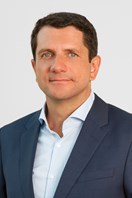Study: Cancer patients’ quality of life significantly increased through holistic rehabilitation
2/4/2016Number of cases of anxiety and depression halved by rehabilitation – VAMED rehab center St. Veit im Pongau to plan further studies
Vienna / St. Veit im Pongau – Medical advances in cancer therapy have led to a paradigm shift in the treatment of patients: About 70 percent of those affected have a life expectancy of more than five years after their diagnosis. However, even after successful treatment many patients still require assistance in coping with the physical and psychological effects of the treatment. Since 2011, VAMED has been offering appropriate oncological rehabilitation at by now two locations in Austria. Its effectiveness has now been reviewed in the context of a new study.
Rehabilitation of cancer patients plays an ever more important role within the healthcare system. Cancer is increasingly seen as a chronic disease, necessitating an interdisciplinary approach in rehabilitation. Patients are supported in specialized treatment approaches with maximum medical and therapeutic expertise in order to enable them to lead an independent life again after the disease. The experts of the Oncological Rehabilitation St. Veit im Pongau – an institution of VAMED and the Salzburg Regional Hospitals – have now for the first time verified the long-term impact of this approach. With remarkable results: As few as three to four weeks of rehabilitation bring about a “huge improvement in quality of life”, according to Prof. Dr. Thomas Licht, Medical Director of the VAMED rehab center.
In the context of the study, it could be demonstrated that the number of cancer patients who suffered from mood disorders could be reduced to one-half by the rehabilitation. A similar value is obtained for the fear of relapse or renewed disease. Physicians see this anxiety in many patients, often regardless of their actual risk of relapse.
Another frequent long-term consequence of cancer is so-called fatigue, i.e. tiredness and exhaustion that can result both from the disease and from its treatment and often occurs as late as months after the actual recovery. Patients experience this as a massive restriction of their quality of life, as is the case with sequelae such as xerostomia (dryness of the mouth), damage to the peripheral nervous system, lack of mobility and incontinence. According to Prof. Licht, the statistics after rehabilitation showed “dramatic improvements in those patients who are under greatest stress”. Generally, this affects mostly women after breast cancer, who are struggling to cope with a change in their physical appearance and their life planning.
Patients with massive nutritional disorders who suffer from extreme loss of weight, as well as persons with cancers of the blood system, which must be dealt with by particularly aggressive means, are also key target groups of oncological rehabilitation.
At the core of the rehab there is the close cooperation between different health professionals – from physicians and psychologists to physiotherapists and occupational therapists. Strength and endurance training are combined with comprehensive psycho-oncological care and extensive patient education in regard to future lifestyle habits that can help reduce the risk of disease recurrence. Apart from that, VAMED as the largest private operator of rehabilitation clinics in Austria also counts, particularly in oncology, on the creation of “Healing Environments”. Rooms are specifically designed to be therapeutic, activating and stress-reducing. Deliberately selected materials, lighting and furnishing elements mobilize the patient, without exposing him or her to the environmental stress factors of a conventional clinical setting.
Each year, the hospitals in St. Veit im Pongau and the “Sonnberghof” in Bad Sauerbrunn in Burgenland allow some 4,000 patients to benefit from oncological rehabilitation.
The long-term effects of the rehabilitation program on the patients are now being explored further. For the first study on the effects of rehabilitation, in St. Veit im Pongau data from nearly 1,000 people were already evaluated. On this basis, Prof. Licht is going to continue, jointly with the Sonnberghof, researching the subject of oncological rehabilitation. The goal is to examine how sustainable the improvements in the patients’ quality of life achieved through the rehabilitation are. (The End)
About VAMED Rehabilitation
As one of the world’s leading healthcare providers, VAMED operates 15 of the most renowned rehabilitation centers, twelve of them in Austria, two in Switzerland and one in the Czech Republic, with a total of 1,788 beds. With about 1,300 beds, VAMED is also the largest private provider of rehabilitation services in Austria. The facilities are available also for statutory health insurance patients and expand the health options in the fields of neurology, oncology, orthopedics / rheumatology, psychosomatics / psychiatry, cardiology, and pulmonology.
Diagnosis and treatment methods according to the latest state of technology and ultra-modern facilities ensure that equipment and environment likewise contribute to rapid recovery of the patient. By the integration of the locations and the involvement of further professionals for prevention, acute treatment and care, VAMED ensures first-class medical and therapeutic treatment services according to the latest state of science in each of its institutions.

